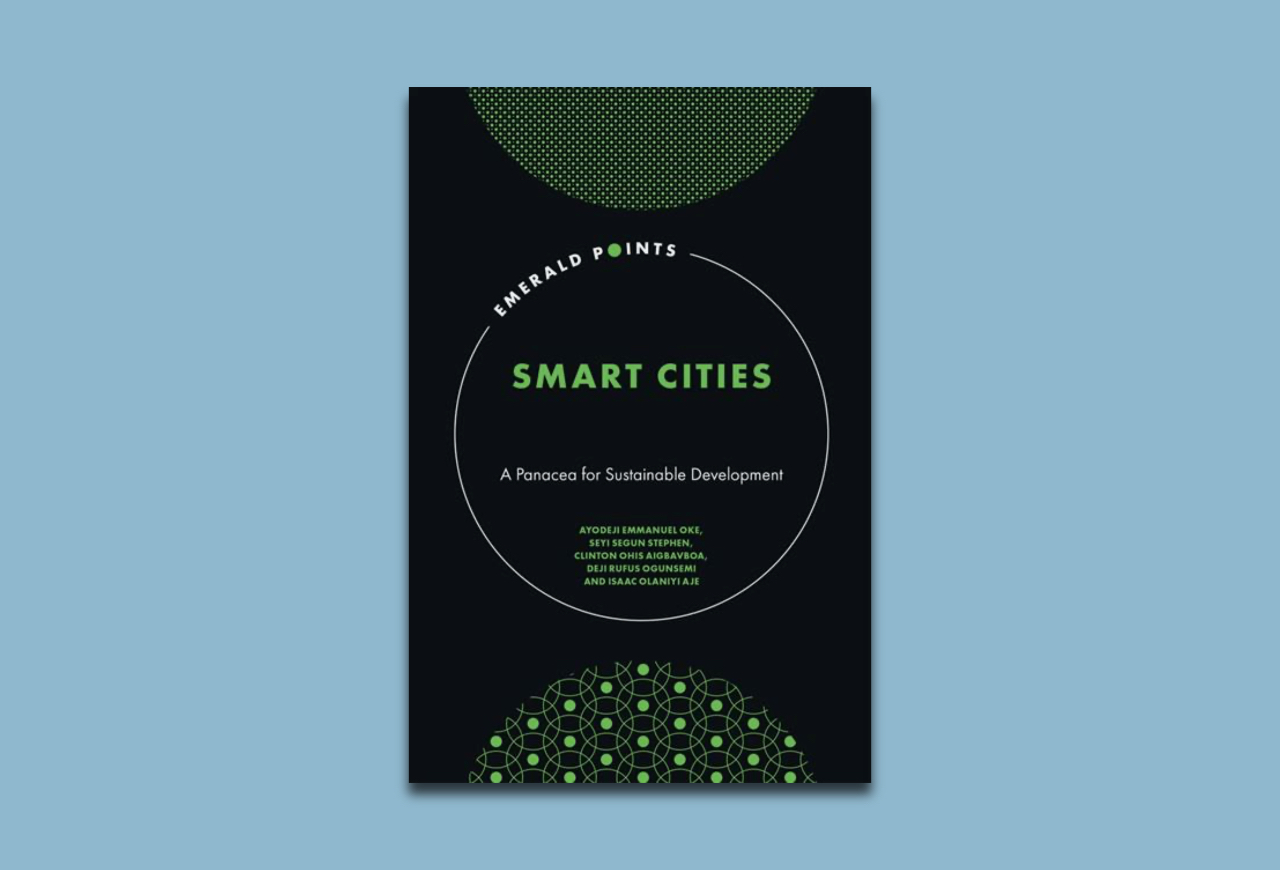The rollout of smart cities in Africa is crucial to global sustainable development. But there are significant barriers to overcome, including lack of know-how and security concerns around the deployment of new technologies

In brief
- An overly academic book, that nonetheless highlights the importance of ‘smart city’ development and gives an interesting African perspective
- The “barriers to smart cities” are listed in detail
- Security is a major issue in technology’s deployment, not least in Africa
Smart cities are a vital part of future global sustainable development. As the authors of this book observe individuals are moving to urban areas at an exceptional rate.
According to the United Nations, more than 700 million individuals will be added to urban populaces in the next ten years, and an extra 3 billion occupants by 2050. “A current UN report recommends that 40,000 new urban areas will be required around the world,” the book says.
The book tells us that “cities consume the largest portion of resources, especially fossil [fuel] energy, thereby making resources such as disposable land, clean water and fossil energy limited for use. Established urbanised centres need to control their development, to…enhance environmental sustainability, communal unity and improve the standard of living.”
Ayodej Oke, the book’s leading author, works at two prestigious African universities – the Federal University of Technology in Akure, Nigeria, and the Faculty of Engineering and Built Environment at University of Johannesburg, South Africa. His co-authors, Seyi Stephen, Clinton Aigbavboa, Deji Ogunsemi and Isaac Aje, all come from one of those two institutions.
It is good for impact investors to get an African perspective, partly because of the investment opportunity. As the authors say, the urban populace in Africa is set to “dramatically multiply in the coming decades” and “is a ready market to be explored in infrastructural development” with an annual deficit of “nearly $50bn… in transport, power, water supply and sanitation”.
And, partly because of the impact implications. “Coordinating that innovation in the correct way will be fundamental if urbanisation in the twenty-first century is to be a motor of development…instead of a magnet for imbalance and social disappointment.”
Overly academic
Unsurprisingly, their target audience is particularly broad, including students, policy-makers, and above all professionals in the construction industry. And, in a peculiarly African touch, “local monarchs”.
There are some drawbacks in having so many academic authors. Previous academic works are constantly cited, and the book cries out for a ruthless editor to improve the flow and eliminate ‘academic speak’.
There is also something of an obsession with definitions. Partially understandable as “smart city development is frequently kept down by an absence of lucidity about what a smart city is”.
However, there is a perfectly acceptable definition early on which could have allowed the authors to get on with the business of the book.
“[A] smart city is a strategic means to broaden the use of IT …in order to improve daily life quality. The transformation from an ordinary city to that which is sustainable…developing strategies that can better the quality of life and at the same time improve the environment.”
Notwithstanding these drawbacks, there is a lot of interesting material regarding “smart city barriers”.
Smart city barriers
Often, urban infrastructures were created for much smaller populaces. “A significant part of the created world has a framework that is close or past its plan life, requiring monstrous updates.”
And interestingly, the authors note one barrier is the “lack of ICT know-how. Despite the fact that industry has grown profoundly complex ICT abilities, few city governments have the financial plan or the vision to push the best in class”.
Likewise, smart cities “definitely need [a] high level of professional expertise and sound training that is insufficient among many procurement officers”.
The authors cite a UK study (Clarke, 2017) which found “hundreds of English civil servants were graded, and their pay altered, following a series of high-profile procurement mistakes”.
Security is clearly an issue. “Particularly in a nation like Nigeria …the absence of dependability and security of Internet-of-Things (IoT) has made the powerlessness and uncertainty of savvy city frameworks a recognised marvel.”
The authors cite another study (Cerrudo, 2014) which warns about the lack of security testing in innovations introduced in urban areas. “For instance, traffic control sensors introduced in Washington DC, and some different urban areas can be effortlessly hacked.”
“To put it plainly, shrewd urban areas are a security catastrophe holding up to happen (Edwards, 2015). There are three driving wellsprings ….the IoT, Big Data and the Cloud.”
These are important concerns that impact investors should be aware of, particularly when it comes to Africa.






